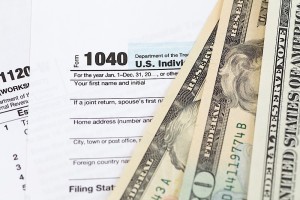2016 Tax Breaks For Real Estate Business Investors
Tax time is coming, but many real estate businesses and investors may find extra breaks to take advantage of this year. Tax filing season isn’t the favorite time of year for many real estate business owners and investors. Yes, they get to count up all of the mountains of extra income they’ve earned and how much less in taxes they are paying than before, but many will still end up owing the IRS a sizable check. Fortunately, new tax laws may provide some extra relief… The Disclaimer If you’ve been paying attention to your tax filings and bills for the last couple of years, you already know all too well that it is absolutely critical to lean on your own licensed tax professional before making any financial moves. There are many marketers and media outlets that make big tax saving promises. Then you get to tax time and find out you don’t get any break after spending those thousands – or tens of thousands – of dollars. So use the following as a guide of questions to bring up with your tax preparer and for strategizing your tax plan for the next year. But don’t count on that break until they give you the green light. Traditional Real Estate Tax Breaks Becoming self-employed and investing in real estate is incredibly popular for the tax breaks. They can be necessary moves for the wealthy to prevent bleeding out all of their gains to the tax man. They are also critical in finding the extra financial freedom to get ahead. Common real estate related tax breaks often include: The PATH Act At the end of December 2015, the government signed into law the Path Act (Protecting Americans from Tax Hikes). This massive bill of nearly 1,000 pages made a few tweaks to tax laws, extended some tax breaks for longer periods, and made other tax breaks permanent. This has been heralded as a great move by business journalists, angel investors, and small business owners. Instead of going year by year, individuals can now make moves with confidence and knowing their tax strategies will be viable for longer. Some of the individual and business tax provisions covered in the PATH Act include… State and Local Sales Taxes According to CPA Practice Advisor, this means that individual taxpayers can now deduct sales taxes instead of state and local income taxes. This could be a big deal for those in states with no state income tax and for those who make big purchases. Mortgage Debt Exclusion The exclusion of up to two million dollars in taxes on mortgage debt forgiveness (think short sales and foreclosures) on principal residences is extended through 2016. Mortgage Insurance Subject to income restrictions, taxpayers can deduct mortgage insurance premiums on their taxes through 2016. Residential Energy Credit Extended through 2016, property owners may deduct some installation costs of solar, natural, and gas appliances, electric heat and water pumps, and central AC units. Accelerated Depreciation Certain types of real estate depreciation can be cut from 39 years to 15 years, which offers bigger upfront tax breaks. REITs Real Estate Investment Trusts may get a bump in 2016 as new rules make it easier for foreign funds to invest and avoid taxes. REITs may also spin off tax free subsidiaries that other companies are being cracked down on for the same moves. According to The National Law Review, FIRPTA withholdings for foreign nationals increases from 10 percent to 15 percent for higher end properties. This, together with new Treasury and FinCEN targeting of luxury property buyers in NYC and Miami, may spike more activity in the real estate market for deals over a million dollars, and under 300 thousand dollars. Charitable Donations Tax free distributions from IRAs to qualified charities are being extended. Currently, those 70.5 years old and older may donate 100,000 dollars each year, tax free. Other gifts of property are being lifted as well. This should be especially beneficial to real estate investors and those investing through self-directed IRAs. Small Business Tax Breaks A variety of tax breaks are extended for employee transportation, payroll taxes, R&D, and hiring specific groups of people like military veterans. Perhaps most notable is the permanent extension of the capital gains tax break for small business stock. This break has also reverted to 100 percent tax free gains for investors and businesses with qualified small business stock. This could prove to dramatically boost private direct investment in small businesses and startups in 2016 and beyond. Make sure you claim all of your tax breaks this year!